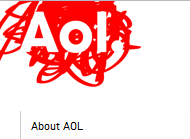 By now you must have heard the news that AOL has acquired us. Here are videos of the on stage signing of the agreement and an interview with AOL CEO Tim Armstrong immediately afterwards.
By now you must have heard the news that AOL has acquired us. Here are videos of the on stage signing of the agreement and an interview with AOL CEO Tim Armstrong immediately afterwards.
So how did all this happen? And What happens to TechCrunch now?
In May I had a chance to interview Tim on stage at TechCrunch Disrupt: New York. After the talk we went to the speaker room for a quick private chat (this happens after most talks unless the speaker has to rush out).
Tim asked me how things were going at TechCrunch. I told him I was exhausted after five years but that a recent move to Seattle made it easier to balance my life. I joked that I was half retired.
“That’s too bad, he said, we’d love to acquire you but we’d need to know you would stick around.”
“Wait. What? Yeah I’m great! Lots of energy, I’m having so much fun! Will probably do this for the rest of my life.”
We laughed, and that was the end of any conversations for a while. But Sometime in late July conversations started again. And most of the conversations were about our commitment to keep doing what we do.
The truth is I was tired. But I wasn’t tired of writing, or speaking at events. I was tired of our endless tech problems, our inability to find enough talented engineers who wanted to work, ultimately, on blog and CrunchBase software. And when we did find those engineers, as we so often did, how to keep them happy. Unlike most startups in Silicon Valley, the center of attention at TechCrunch is squarely on the writers. It’s certainly not an engineering driven company.
AOL of course fixes that problem perfectly. They run the largest blogging network in the world and if we sold to them we’d never have to worry about tech issues again. We could focus our engineering resources on higher end things and I, for one, could spend more of my day writing and a lot less time dealing with other stuff.
The more we spoke with AOL the more we saw a perfect fit. They already own many of the top technology blogs. They already have a huge sales team in place (although our own sales team kicks ass and is staying on). And they have an internal events group that we will be able to leverage.
From a product and business standpoint, it’s a perfect fit.
But what put things over the top, and what ultimately led us to discontinue discussions with other suitors, was the AOL management team. I’m not going to gush here because, well, I’m clearly conflicted. But Heather and I believe in this team enough to bet our company on them. AOL has a very big vision for the future. They may succeed or they may fail, but at least they are all running in the same direction. No one at AOL complains that they don’t know what the company is trying to do.
So at that point we were basically sold. But AOL was very aggressive about one last important issue that really sealed the deal – editorial.
Tim told me that he doesn’t want whatever makes TechCrunch special to go away. He also said it was important that we feel free to criticize AOL when we think they deserve it. And the agreement we signed with AOL fully reflects this. In particular, we used the Twitter document scandal as a test. If the same thing happens with AOL in the future, we should feel comfortable posting those documents. And in that unlikely event, we will.
The last thing we want to happen is to end up with same cuddly relationship that the Wall Street Journal has with its sister company MySpace, for example.
In the end, we’ll probably have to create internal checks to ensure that we aren’t more critical of AOL than we otherwise would be just to prove our editorial independence. And there is one thing that we probably won’t be able to avoid. You probably won’t see a lot of glowing blog posts about AOL in general. People will quite rightly suspect we’re just doing it to please our corporate parent. So we’ll probably leave the high fives to our competitors.
So we begin another journey. I fully intend to stay with AOL for a very, very long time. And the entire team has big incentives to stay on board for at least three years.
On a final note, I don’t want to get all teary-eyed here, but the best comment I ever saw on TechCrunch was years ago in response to when I quipped something like “This is my blog and I’ll write what I want” in response to a troll. The response was “No Mike, This is OUR blog. You just work here.”
In the end that’s true. TechCrunch is a community. A community of great writers, great employees, and great readers. We also have a few trolls, but it wouldn’t be the same without them! All of us are TechCrunch, and I thank all of you for being a part of something really fun and special.
If you have questions, please ask me below in the comments and I’ll do my best to answer them.
